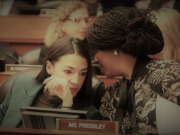One of the problems with campaign finance laws is that, no matter how well-intentioned, in practice, the laws have less to do with “cleaning up government” or “ending special interest influence” than they do with squelching political speech. Despite this reality, judges – including those who are highly skeptical of state claims in areas of criminal law or other civil rights – tend to be remarkably credulous when the state makes claims about the necessity of its campaign finance laws. Yesterday’s decision by the United States District Court for the District of Colorado in Holland v. Williams, in which our good friends at the Institute for Justice represented the plaintiff (and we filed an amicus brief), is an engaging break from this pattern.
In 2002, Coloradans adopted an amendment to the state constitution that, in addition to imposing numerous limitations and mandates on the financing of political campaigns and speech, essentially turned over the power of the government enforcement process to “any person who believes that a violation [of the campaign finance laws] has occurred.” Merely by filing a complaint with the Secretary of State, such an individual is then entitled to use the legal power of the state to “gather evidence … as if prosecuting a case,” including the right to subpoena documents and depose their political adversaries. There is no process for screening out frivolous or unmerited complaints – no discretion by informed prosecutors or government officials, no motions to dismiss prior to discovery, no sanction for filing a frivolous action. Indeed, to the contrary, the administrative law judges who then preside over these prosecutions have held that efforts to hold complainants accountable for wrongly dragging private speakers through the courts may lead to “the potential chilling of the complaint process.”
As you might expect, this enforcement process is a fiasco. Well-meaning but uninformed complainants with no knowledge or understanding of the law can tie up a campaign or speaker for weeks, imposing tens of thousands of dollars in costs, for things that are not remotely violations of the law. And, of course, less well-meaning individuals and organizations intentionally use the law to harass and impose costs on their political opponents.
The facts of Holland v. Williams are a classic example: Colorado mom Tammy Holland published ads in the local paper critical of various policies of the school board. Because the ads did not advocate for or against any candidate or issue in an election, they are clearly not subject to Colorado campaign finance law. But that didn’t stop members of the local school board from twice filing complaints against Holland, alleging that she was required to register as a political committee, and further alleging that her ads violated the law by not including required disclaimers – a claim based on the board members’ mistaken belief that the disclaimers required in campaigns for United States Senate or Congress applied to the local school board. Despite the ignorance (or sheer malice) of the board members in bringing the frivolous complaint, Holland was forced to spend thousands of dollars defending herself. With IJ’s assistance, however, she challenged the constitutionality of the law in federal court, and this month won on summary judgment.
Predictably, of course, the “reform community” is trashing the decision by federal District Judge Raymond Moore, an Obama appointee. Professor Richard Hasen, publisher of Election Law Blog, within hours of the decision’s release called it, without elaboration, “perhaps the worst-written and reasoned election law opinion I’ve read from a federal court.”
In fact, Judge Raymond’s decision offers many pluses.
First, Judge Raymond did something too many federal and state courts are refusing to do: put some teeth into the requirement that the government have a compelling reason to adopt policies that limit speech, and insist that the government solution be narrowly tailored to address that interest. Indeed, in many cases we see federal judges straining to offer justifications for campaign finance laws that the state itself doesn’t offer. Judge Raymond would have none of that, however, noting, “defendant has made no attempt to explain what state interest, compelling or otherwise, is advanced by the enforcement provisions. Defendant has also not provided any evidence of its interest being advanced by the enforcement provisions.” In other words, assuming that the various substantive restrictions of the Colorado law are necessary, the Court still demanded to know why this chilling enforcement scheme was necessary for the law to be effective. Colorado had no answer, and Judge Raymond wasn’t going to make up some rationale for the State.
But the Court wasn’t stingy. Having noted the lack of any state compelling interest, it generously assumed that one existed – “that the enforcement provisions are narrowly tailored to advance Colorado’s interest in enforcing its campaign finance laws” – and asked the second question: is the State solution narrowly tailored to address that interest? This is a vital step in a proper First Amendment analysis, but one which too many judges gloss over in the context of campaign finance, assuming that sweeping prophylactic measures, rather than “narrowly tailored measures,” are somehow necessary. To ask the question was to answer it, or as the Court wrote, “defendant provides no evidence that the enforcement provisions are narrowly tailored. This is perhaps not surprising given that defendant concedes there is no evidence that its interests could not be served equally well by a system different to the one contained in the enforcement provisions.”
“Thus,” concluded Judge Raymond, “even if the Court were willing to make an argument for defendant in defense of the enforcement provisions, the Court cannot create something out of nothing,” and summary judgment for the plaintiffs was appropriate.
Next, the Court put the State to the test in a way most judges seem reluctant to do. There is a tendency for the courts to de facto put the burden of proof of speakers to show that heavy regulation is not necessary to meet the state’s interest in fighting off corruption. Judge Raymond correctly left the burden on the State to demonstrate that regulation is necessary to justify the infringements on First Amendment rights: “[D]efendant has made no argument that [the enforcement provisions] are reasonable.” Continuing, the Court asked a couple tough questions: “What does ‘believes’ mean and how is that a reasonable method to protect the State’s interest in enforcing its campaign finance laws? Moreover, how is it reasonable to encroach upon First Amendment speech by allowing a person to enforce campaign finance regulations when that person may have no experience of campaign finance regulations? Because that is precisely what the enforcement provisions facially allow – any person to enforce them, which obviously includes those people with no experience of campaign finance regulations.” The obvious conclusion: “The Court sees nothing reasonable about outsourcing the enforcement of laws with teeth of monetary penalties to anyone who believes that those laws have been violated.”
In short, due process has to include something that limits the ability of any partisan political foe to impose substantial costs on speech, particularly when the costs may be imposed for bad motive or sheer ignorance of the law. One might imagine a law that allowed any business to prosecute another for “unfair competition” with no mechanism for weeding out frivolous or mistaken complaints. It would soon become a tool to destroy one’s market competitors, used in place of manufacturing better products, providing better service, or finding unmet customer needs. The Court recognized this and would have none of it.
The Court also saw through the bizarre sophistry that sometimes runs through opinions upholding campaign finance laws. For example, when Colorado noted that politically motivated complaints were a common part of enforcement elsewhere (up to 98% of the complaints in Florida, according to the State), the Court gave the obvious response: “and?” “And,” indeed, and it is remarkable that the State seemed to think this was a defense of the law. The Court noted that that was all the more reason a mechanism is needed to weed out meritless complaints, and noted that other states had at least some greater control over the process, rather than just turning state power over to anyone with a political grudge.
Repeatedly, the Court kept the pressure on the State to justify its infringement on speech rights, rejecting “defendant’s assumption that, because there must be a constitutional way to enforce campaign finance laws, plaintiff must show that the enforcement provisions have some type of negative aspect to them in comparison to a constitutional system.” No, said Judge Raymond: the State has to show that the negative aspects are justified.
We also liked the opinion for resurrecting an important but oft-overlooked 1995 Supreme Court case, McIntyre v. Ohio Elections Commission, and returning to the core precedent of Buckley v. Valeo (1976), which seems to get little attention these days when courts want to uphold campaign finance restrictions.
In the end, I wouldn’t entirely disagree with Professor Hasen that the opinion is not always well-written (although it includes a few good zingers, such as “Defendant, perhaps unsurprisingly, but at least consistently, provides no precedent to support its request”), but in the end the reasoning is surprisingly sound – much more attuned to the realities of campaign finance enforcement than many lower court decisions, more prepared to take seriously the burdens that the laws place on speech outside of their formal restrictions, and serious about placing the burden on the state in fact, not just in pro forma recitation, to justify the infringements on speech.
Congratulations to Ms. Hammond, to IJ, and to IJ’s lead attorney on the case, former IFS Staff Attorney Paul Sherman.














